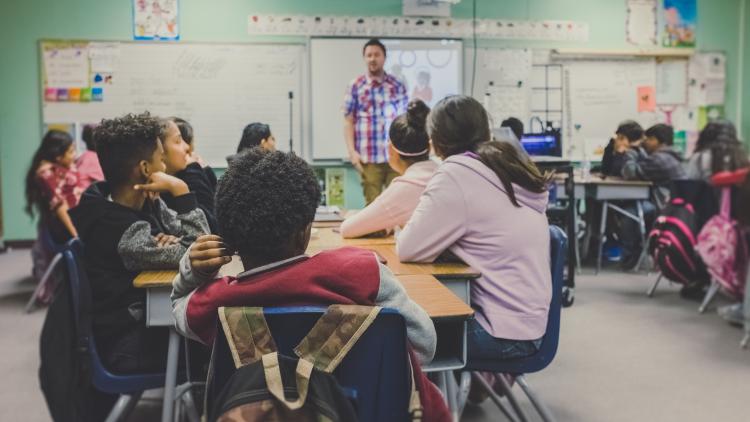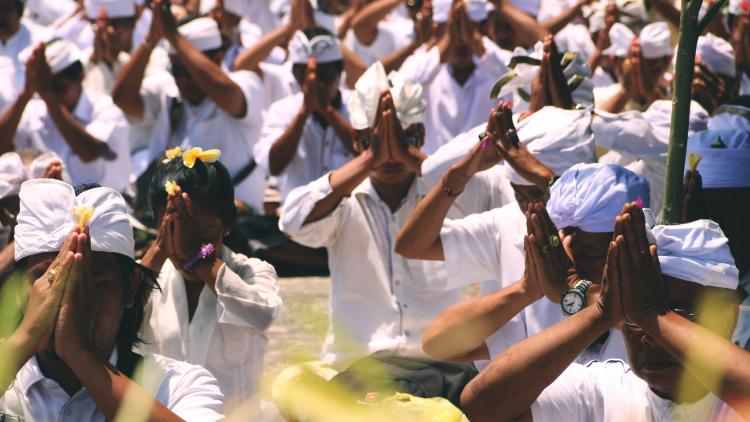BA Global Philosophy


Key information
- Duration
- 3 or 4 years
- Start of programme
- September
- Attendance mode
- Full-time
- Location
- On Campus
- Fees
-
Home: £9,535
International: £23,780 - Course code
- V590
- Entry requirements
-
ABB
Contextual: BBB
-
Austria: Reifeprufungszeugnis / Maturazeugnis: four subjects at 1, 2, 2, 2
A Level equivalent: ABB
Contextualised offer: BBB -
Belgium: Diploma van Secundair Onderwijs: 75% (7.5/10, 15/20) overall
A Level equivalent: ABB
Contextualised offer: BBBInformation for prospective students from Belgium
-
Bulgaria: Diploma za Zavarsheno Sredno Obrazovanie: 5.3 and 5.0 in two State Maturity Exams
A Level equivalent: ABB
Contextualised offer: BBB -
Canada: High School Diploma: 80% with 5 acceptable Grade 12 subjects (most territories).
British Columbia: AABBB in Grade 12 courses.A Level equivalent: ABB
Contextualised offer: BBBInformation for prospective students from Canada
-
China: Senior Secondary Graduation Certificate + Gaokao: 78% overall in Gaokao PLUS 85% overall in Senior Secondary School Graduation Certificate (year 11 and 12)
A Level equivalent: ABB
Contextualised offer: BBBInformation for prospective students from China
-
Croatia: Matura Certificate: 4.5 overall with 5 in 1 Higher level subject
A Level equivalent: ABB
Contextualised offer: BBB -
Cyprus: Apolytirion with 2 A-Levels: Apolytirion 18/20 + A-level grades BB
A Level equivalent: ABB
Contextualised offer: BBB -
Czech Republic: Matura Certificate: 1, 2, 2, 2
A Level equivalent: ABB
Contextualised offer: BBB -
Denmark: Studentereksamen; Hojere Forberedelseseksamen; Hojere Handelseksamen; Hojere Teknisk Eksamen: 7 plus 10, 7, 7 in three Level A subjects
A Level equivalent: ABB
Contextualised offer: BBBInformation for prospective students from Denmark
-
Estonia: Gümnaasiumi lõputunnistus with the Riigieksamitunnistus: 4.0 with 85%, 80%, and 80% in 3 state exams
A Level equivalent: ABB
Contextualised offer: BBB -
Finland: Ylioppilastukint / Studentexamen: four subjects at 6, 5, 5, 5
A Level equivalent: ABB
Contextualised offer: BBB -
France: French Baccalaureat or Option Internationale du Baccalauréat (OIB): 13/20
A Level equivalent: ABB
Contextualised offer: BBBInformation for prospective students from France
-
Germany: Abitur: 1.8
A Level equivalent: ABB
Contextualised offer: BBBInformation for prospective students from Germany
-
Greece: Apolytirion of Geniko Lykeio with Pan Hellenic exams: 18/20
A Level equivalent: ABB
Contextualised offer: BBBInformation for prospective students from Greece
-
Hong Kong: Hong Kong Diploma of Secondary Education: 544 in two electives and one core (all other subjects grade 3)
A Level equivalent: ABB
Contextualised offer: BBBInformation for prospective students from Hong Kong
-
Hungary: Matura (Erettségi): 4.5 overall
A Level equivalent: ABB
Contextualised offer: BBB -
Iceland: Stúdentspróf: 7.5
A Level equivalent: ABB
Contextualised offer: BBB -
India: Standard XII: 75% (CBSE, CISCE, Tamil Nadu, Maharashtra & West Bengal boards), 80% (all other state boards)
A Level equivalent: ABB
Contextualised offer: BBBInformation for prospective students from India
-
Ireland: Irish Leaving Certificate: H1, H2, H2, H3, H3
A Level equivalent: ABB
Contextualised offer: BBB -
Israel: Bagrut: Overall grade of 7, 80% with 3 subjects at 5-unit level
A Level equivalent: ABB
Contextualised offer: BBBInformation for prospective students from Israel
-
Italy: Diploma Consequito con L’Esame di Stato: 80% overall
A Level equivalent: ABB
Contextualised offer: BBBInformation for prospective students from Italy
-
Latvia: Certificate of General Secondary Education: 88% in four State subject exams
A Level equivalent: ABB
Contextualised offer: BBB -
Lithuania: Brandos Atestatas: 8.5/10 and 90%, 85%, 85% in three State Exam
A Level equivalent: ABB
Contextualised offer: BBBInformation for prospective students from Lithuania
-
Malta: Advanced Matriculation Certificate: AB (Advanced) + BBB (Intermediate)
A Level equivalent: ABB
Contextualised offer: BBB -
Netherlands: Voorbereidend Wetenschappelijk Onderwijs: 7.5 overall with 8, 8, 7, 7 in four subjects
A Level equivalent: ABB
Contextualised offer: BBB -
Norway: Vitnemål vidergaende opplaering: 4.3 overall
A Level equivalent: ABB
Contextualised offer: BBBInformation for prospective students from Norway
-
Poland: New Polish Matura: 75% in three Advanced Level subjects
A Level equivalent: ABB
Contextualised offer: BBBInformation for prospective students from Poland
-
Portugal: Diploma de Ensino Secundario: overall 17.5/20
A Level equivalent: ABB
Contextualised offer: BBB -
Romania: Diploma de Bacalaureat: 8.5 overall
A Level equivalent: ABB
Contextualised offer: BBBInformation for prospective students from Romania
-
Singapore: Polytechnic Diploma (Nanyang, Ngee Ann, Singapore, Temasek and Republic Polytechnic): GPA 3.3
A Level equivalent: ABB
Contextualised offer: BBBInformation for prospective students from Singapore
-
Slovakia: Maturitná skúška / Maturita / Vysvedčenie o maturitnej skúške: four subjects at 1, 2, 2, 2
A Level equivalent: ABB
Contextualised offer: BBB -
South Africa: National Senior Certificate: 77666
A Level equivalent: ABB
Contextualised offer: BBBInformation for prospective students from South Africa
-
Spain: Curso de Orientación Universitaria / Título de Bachillerato: 7.5
A Level equivalent: ABB
Contextualised offer: BBBInformation for prospective students from Spain
-
Sweden: Slutbetyg / Examensbevis från Gymnasieskolan: A in 1200 credits and no grades below D / 18 / mainly B overall (MVG/VG)
A Level equivalent: ABB
Contextualised offer: BBB -
Switzerland: Federal Maturity Certificate: 4.5
A Level equivalent: ABB
Contextualised offer: BBB -
Tanzania: Advanced Certificate of Secondary Education: ACSE with BBB in 3 principle subjects
A Level equivalent: ABB
Contextualised offer: BBB -
Trinidad and Tobago: CAPE: Six CAPE units with grade 2 (+two double-unit courses)
A Level equivalent: ABB
Contextualised offer: BBB -
Turkey: Lise Diplomasi: 78-83% (depending on high school)
A Level equivalent: ABB
Contextualised offer: BBB -
USA: High School Diploma plus ACT, SAT, or AP exams:
-
High School Diploma GPA 3.0 plus SAT 1280 or ACT 27 and 2 AP's at 4,4
or -
High School Diploma GPA of 3.2 plus 2 AP's at 4,4
or -
High School Diploma GPA 3.4 plus SAT 1300 or ACT 29
or -
2-year Associate degree GPA 3.1
A Level equivalent: ABB
Contextualised offer: BBB -
-
See undergraduate entry requirements and English language requirements for international and alternative entry requirements.
Course overview
Philosophy has been a significant activity in every society for several thousand years.
It is a basic aspect of all human cultures to ask “big questions” about the fundamental nature of reality, about what it is to be human, what constitutes a good life, beauty, justice, knowledge, and how to confront and resolve ethical quandaries.
The BA Global Philosophy degree is one of the only programmes in the world to provide the opportunity to ask these questions and examine answers from a global, cross-cultural, and decolonial perspective. This degree offers rigorous training in the epistemological standpoints, moral philosophical approaches, metaphysical systems, and socio-political thought of a range of Global North and Global South traditions in dialogue with each other. Because of this, the BA Global Philosophy programme at SOAS is truly unique and state-of-the-art.
In addition to the ability to think critically and rigorously, studying philosophical traditions from Asia, Africa, the Middle East in dialogue with Continental European and Anglophone traditions enables you to take a broad and comprehensive view of the world and to think more deeply, sensitively, and insightfully about humanity, (in)justice, ethics, and real-world problems.
Why study BA Global Philosophy at SOAS?
- SOAS is ranked top 30 in the UK for Arts and Humanities (QS World University Rankings 2025)
- We are ranked top 10 in the UK for Theology, Divinity and Religious Studies (QS World University Rankings 2025)
- We are ranked top 10 in the UK for Research Quality (Complete University Guide Subject League Tables 2026)
- BA World Philosophies scored above sector in the following categories: teaching quality, learning opportunities, assessment & feedback (NSS 2024)
- We are home to the world’s first ever Decolonising Philosophy Curriculum Toolkit and Handbook
- Our average 20/21 Graduate Outcome Departmental score is 82.85% (HESA)
Study Abroad
Students are able to apply for the optional year abroad in their second year of studies at SOAS. Students will be invited to information sessions about how to apply during their second year of studies by the Study Abroad team. Student applications are considered on academic merit and a personal statement and are subject to availability. Students need to have achieved 55% or higher in their first year of studies to be eligible. For further details, visit the Study Abroad section of our website.
Structure
The structure of the BA Global Philosophy, taken as a single-subject honours degree, ensures that students gain a rigorous grounding in core philosophical themes, concepts, problems and approaches drawn from non-European, European, and Anglophone philosophical traditions with the flexibility to enable regional or thematic specialism or language capability.
Modules to the equivalent of 120 credits must be taken in each year. Each year students take compulsory modules alongside a list of options in various traditions or themes in World Philosophies, or may choose a language specialism.
- Year 1: provides an essential foundation in Global Philosophies, and introduces core topics in Philosophy.
- Year 2: builds on the foundations established in the first year, enabling students to grapple with questions of interpretation, hermeneutics, phenomenology, and dialogue between and within philosophical traditions. Core components of philosophical methods and concepts are also taught and students are encouraged to develop a regional or thematic specialism, choosing from a wide range of options that address philosophical themes or offer training in specific philosophical traditions. Language training is also encouraged.
- The Third and final year is characterised by a focus on epistemology and critique, independent research, and the consolidation of a chosen regional or thematic specialism. All students may undertake a supervised Independent Study Project which is intended to consolidate and extend a student’s understanding and knowledge applied to prominent themes or debates in the field of World Philosophies.
Important notice
The information on the website reflects the intended programme structure against the given academic session. The modules are indicative options of the content students can expect and are/have been previously taught as part of these programmes.
However, this information is published a long time in advance of enrolment and module content and availability is subject to change.
Year 1 - Compulsory
Year 1 - Guided options - Philosophy List A
30 credits from Philosophy List A or Languages
Year 2 - Compulsory
Year 2 - Guided options - Philosophy List B
Minimum of 30 credits and maximum of 60 credits from Philosophy List B. Up to 30 credits can be exchanged for a Language option or for open options. Minimum of 30 credits from Discipline-based modules
Year 3 - Compulsory
Year 3 - Guided options - Philosophy - List C
30 to 60 credits from Philosophy List C. Up to 30 credits can be exchanged for a Language option or open option. Minimum of 30 credits from Discipline-based modules
Teaching and learning
The course is examined through written and oral examinations and coursework. In addition, the Independent Study Project (ISP) in year 3 facilitates supervised student research in a prominent topic or debate in the field of World Philosophies.
Programme learning outcomes
Knowledge
- Familiarity with core concepts, themes, and arguments in the discipline of Philosophy;
- Knowledge of the history of Philosophy as a discipline;
- Fluency in a range of philosophical traditions and systems of thought from Asia, Africa and the Middle East;
- Training in theories and practices of criticism and interpretation in relation to western philosophical systems, both analytic and continental.
- Training in theories and practices of criticism and interpretation in relation to core topics in world philosophies, historical and contemporary.
- Knowledge of a variety of intellectual frameworks and key concepts that enable close engagement with the core problematic of intellectual insularity and the value of dialogue across philosophical traditions.
Intellectual (thinking) skills
- Precision in assessment of evidence and argumentation.
- Capacity to discuss philosophical concepts and problems in an articulate, informed, and intellectual manner.
- Critical acumen in the assessment of philosophical arguments and interpretations;
- The ability to assess evidence and arguments independently;
- Effective presentation of complex philosophical arguments;
- Development and application of self-reflexive approaches to dominant issues in the field of world philosophies.
Subject-based practical skills
- Application of logic and critical thinking to both abstract and real-world problems;
- Ability to assess complex arguments in cultural context;
- Ability to develop and articulate clear and strong arguments across a range of contentious issues and debates.
- Academic and professional writing to the highest standards;
- IT-based information retrieval, processing and data organization;
- Research project design
- Presentational skills
- Independent study skills
- Reflexive learning
Transferable skills
- Problem solving, argumentation, and research skills
- Oral and written communication
- Critical and independent thought
- Synthesising of difficult and wide ranging empirical material
- Regional, tradition-based, and/or linguistic specialism
- Working to deadlines and to high standards of presentation and argumentation
- Ability to make assessments involving complex factors
Contact hours
Most courses involve a 50-100-minute lecture as a key component with linked tutorial classes.
SOAS Library
SOAS Library is one of the world's most important academic libraries for the study of Africa, Asia and the Middle East, attracting scholars from all over the world. The Library houses over 1.2 million volumes, together with significant archival holdings, special collections and a growing network of electronic resources.
Fees and funding
Fees for 2026/27 entrants per academic year
| Programme | Full-time | |
|---|---|---|
| Home students | Overseas students | |
| BA, BSc, LLB | £9,535 | £23,780 |
| BA/BSc Language year abroad | £1,425 | £11,770 |
See undergraduate fees for further details.
Employment
Graduates from the Department of Religions and Philosophies develop the skills to analyse and communicate ideas in a clear, and comprehensive manner. A degree in philosophy is highly regarded by employers of many kinds. Philosophy teaches the student how to analyse and communicate ideas in a clear, rational and comprehensive manner. Students of philosophy learn solid argumentation skills and critical analysis: they learn how to learn, how to think, and how to communicate their ideas effectively and persuasively. Graduates develop into well-rounded, mature, thoughtful and articulate employees. The skills of vision, creativity and analytical power being developed through the study of philosophy are key proficiencies which are valuable in many careers and are transferable to a wide range of sectors and roles.
Recent graduates have been hired by:
- Asia Society
- British Council
- Cabinet Office
- Chatham House
- Edelman
- Foreign, Commonwealth and Development Office
- HELP USA
- King's College Hospital NHS Foundation Trust
- Princeton University
- Royal Government of Cambodia
- The Happiness Factory
- The Inter Faith Network for the UK
- The Royal Borough of Kensington and Chelsea
- UNHCR, the UN Refugee Agency
- United Nations Development Programme
Find out about our Careers Service.











